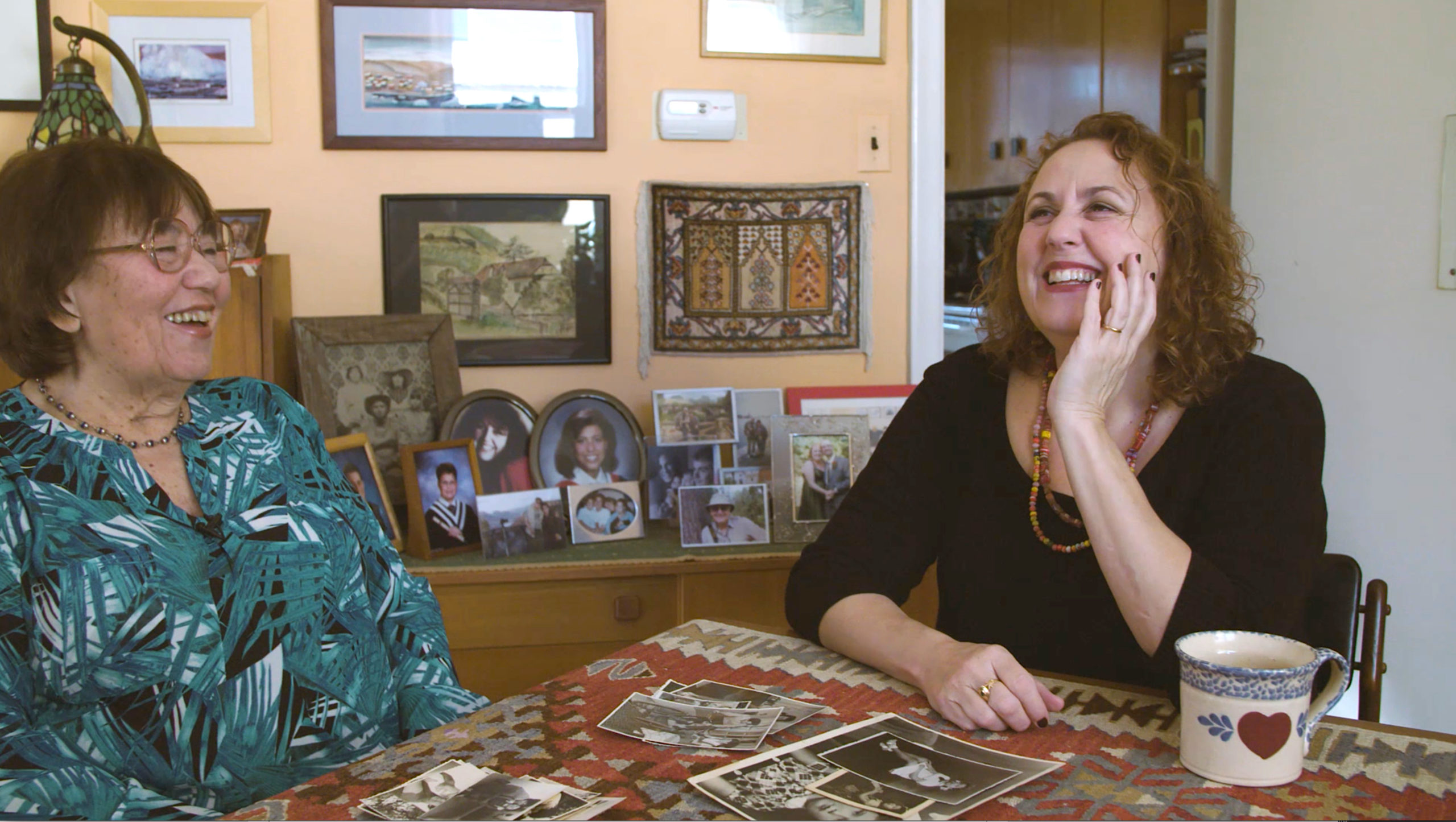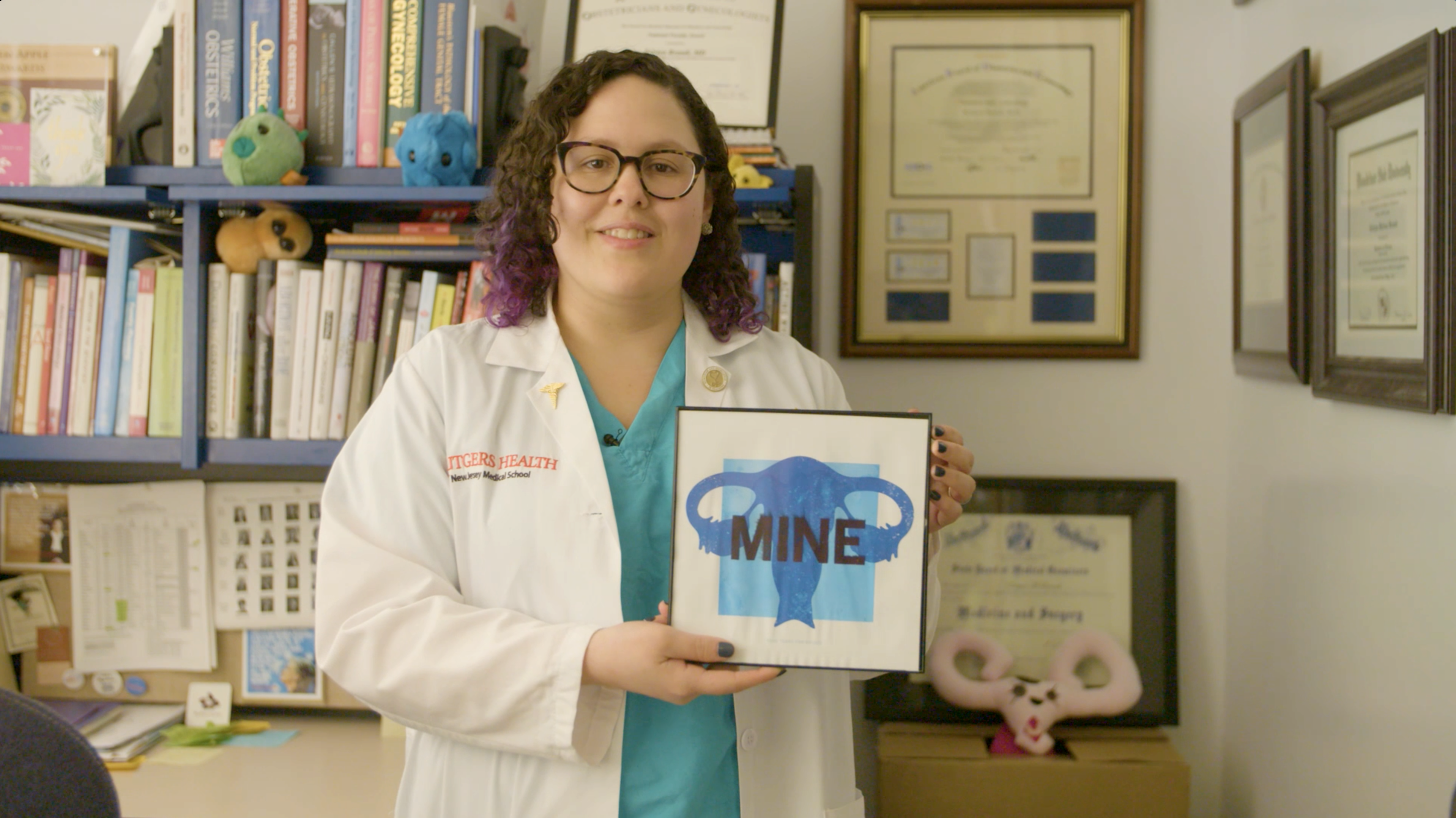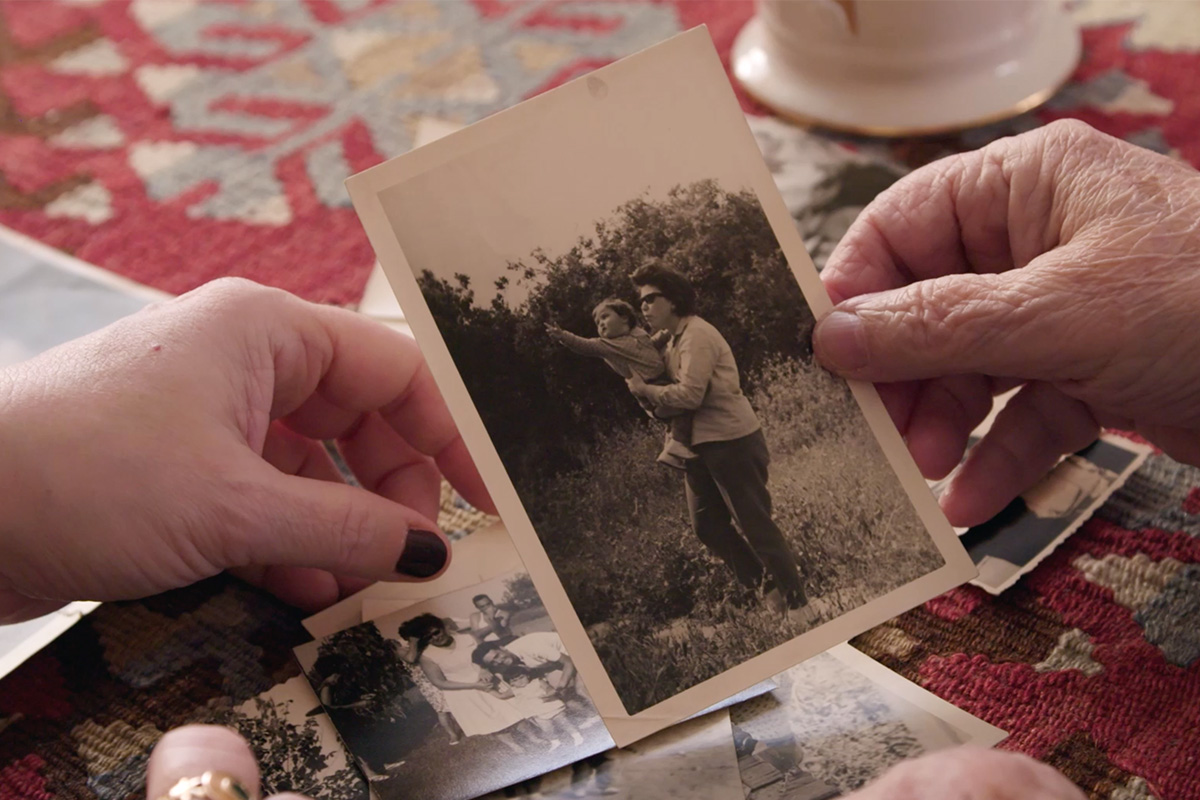In her documentary “My So-Called Selfish Life,” Jewish filmmaker Therese Shechter does a deep dive into an overlooked subset of the reproductive justice movement: women who don’t want kids. The film shines a spotlight on the stigma that women face if they decide to live childfree (or are ambivalent about having kids, or regret having kids). Therese, who never wanted children, says at one point in the film that when all of her friends started having kids, “despite everything I’d accomplished, I felt like I’d fallen behind.” The film poses a sensible question: Why should having kids be the default?
“My So-Called Selfish Life” is full of clips from everything from “Grey’s Anatomy” and “Seinfeld” to old movies (and a hefty dose of Fox News) to hammer home just how much contemporary Western culture expects women to want to be mothers — and assumes there’s something wrong with them if their biological clock never sounds an alarm (read on for more on the history of that unfortunate metaphor). It frames the choice not to procreate within a historical context, touching on slavery-era forced birth and sterilization, the history of contraception, and abortion rights. It includes interviews with people who chose to live childfree and leaders of the childfree movement, like Ellen Peck (who wrote the 1971 book “The Baby Trap”) and Israeli sociologist and feminist writer Orna Donath, who wrote the 2017 book “Regretting Motherhood: A Study.”
In one emotional moment in the film, Therese and her mother, a Holocaust survivor, talk about her mother’s own fraught — and very Jewish — journey to motherhood, which took her from postwar Eastern Europe to the early days of the state of Israel.
Therese spoke to Hey Alma about that story, her film and why the term “biological clock” is so messed up.
This interview has been lightly condensed and edited for clarity.
What is the story behind making this film? Why did you decide to make it?
All my films are essentially about something I noticed in my life that is messed up, or expectations that are messed up. I struggle with wanting to fulfill expectations, but also thinking that they don’t make any sense. So this is one in a series of those kinds of films. My last film was about the mythology around virginity and women’s sexuality, and how our value is measured. It was another film that asked that question: what gives a woman value and is that the right thing?
I’ve never wanted kids. I don’t remember a moment in my life when I thought I wanted them. And at the same time, I never really talked about it. It seemed like such a taboo thing to talk about. I just assumed I would have kids because that’s just what people did. I didn’t really have the language to say to somebody that I didn’t want them. Now it’s very easy: I’m older and I have a lot of language [to describe it]. But when I was in my 20s and 30s, it was very difficult to talk about. And so this is something I’ve been thinking about my whole life. And in the last 10 years, these issues started coming up more publicly; there were more people talking about it and sharing stories. I think the internet has a lot to do with that — the access to a way of talking about things sometimes anonymously, or finding a community that you didn’t know existed. And as that was bubbling up, I thought, maybe this is the time to make this film.

Your mother has such a striking story about having you. Can you tell that story and talk about what it meant to you?
I think that’s the emotional peak of the film. I keep telling her she’s the film’s breakout star. Let me start at the beginning.
It was very hard to get out of Romania, and at a point in the late ‘50s they decided to let Jews out as political refugees, partly because of a lot of work by Jewish agencies outside of Eastern Europe. My parents, in their very early 20s, were able to leave to go to Israel. They had been married for a few years at that point. However, they only got married because they wanted to be sure to get their passports together. They weren’t really ready to be married, but they did it so they could live together because they knew they wanted to be together eventually.
So en route on this ship that eventually docked in Haifa, my mother was really, really sick. She thought she was seasick, but when she got to Israel, she was still sick. And her cousin, whom she’s very close to said, look, we have to take you to a doctor. Their conditions as immigrants from Eastern Europe were terrible; they were living in these little immigrant shacks that, my mother likes to say, “were insulated with cockroaches!” They really had no money; they left with almost nothing because the Romanian government didn’t let them take anything with them. Then she found out she was pregnant. So, in this little immigrant area where people had no money because they’d all arrived with nothing, my mother’s cousin went from door to door to collect money to pay for my mother’s abortion.
That’s amazing.
It’s amazing. And she raised it — people were like, we get it. So my mother’s cousin came back and gave my mother the money and said, here, you can have an abortion. And she thought about it and decided not to. She decided to have the baby in conditions that I personally would never have had a baby in. Like if I was making that choice, I would not exist.
She’s very sweet in the film — she says she thinks it was magic. She knew it was me. And she knew that she wanted to have me, which is when I get all teary. She was determined to have me and she would figure out a way to do it. Even though she was in the middle of university and she couldn’t speak Hebrew yet, and they had no money whatsoever. And her relatives were calling her selfish for having a child under those circumstances. She got a lot of grief over it.
Then we can contrast that with the idea from the film’s title, that not having children is perceived as selfish. No matter what women are choosing, there’s someone who thinks it’s a selfish choice.
Absolutely. Whether it’s having children or not having children. Either way, someone will show up and tell you why you’re wrong. And you’re not fulfilling whatever role you’re supposed to be fulfilling at that moment.

How do you think choosing to be childfree fits into the reproductive justice movement?
That’s such a good question. I don’t think I chose to be childfree. I think it chose me. I don’t think I ever sat down and said, should I have kids or not? It was something that was me — I didn’t have to make an active choice about it. So I think it’s a really important conversation when it comes to reproductive rights, reproductive justice, because you have to have the right not to have children and that has to be part of the conversation.
The framework of reproductive justice should include three things: one of them is the right not to have children, along with the right to have children and the right to raise them in a safe environment. But I think that not wanting kids is just not part of the conversation.
For example, with abortion, we get told stories about women who already have kids who get abortions, or someone who wanted a child but the pregnancy isn’t viable and they have to perform an abortion. Those are the kinds of stories that get told. Nobody tells the story of the person who absolutely does not want children and takes advantage of the tools available to make sure that is what happens. Never wanting children is not really part of the narrative.
I understand how fraught this whole conversation and activism around bodily autonomy have been. But I feel like people who don’t want children are not sitting at that table.
Do you think that there is extra pressure in the Jewish community to procreate?
I grew up hearing and discussing this idea that Jews were victims of genocide and the population was grotesquely diminished in the Holocaust, and it was our duty as Jews to repopulate and make more Jews and make up for the millions that were murdered. So this is something I heard growing up, though it didn’t affect how my family treated my choice to be childfree. I would say that many religions say the same thing. Many religions want more people of their own religion, and many communities who have experienced genocide, including African Americans in the United States, also encourage people to have children to sort of repopulate all that was lost. So anyway, that’s how I understand it.
It’s a problem in Judaism because, like other major organized religions, the communities are organized around life stages. So if you’re part of a synagogue, for example, there’s the teen group, and the singles group in their 20s and 30s. And then you have the family groups in their 40s. There’s no place for a 45-year-old single Jewish woman in the organized Jewish religion, unless you’re going to a super-duper progressive shul — then maybe.
Before watching the film, I did not know the story behind the term “biological clock.” Orna Donath criticizes the phrase for making women’s bodies sound like they have an “internal ticking time bomb.” And it made me realize that terminology could be a part of women’s chronic feelings of falling behind where they “should” be in life if they’re getting married and having kids later or not at all.
The great Orna Donath is an Israeli sociologist and I was such a huge fan of her work that I went to Israel to interview her. I was completely starstruck and girl-crushed when I met her! She would think that’s ridiculous but I think she’s just brilliant.
The idea of the biological clock is fascinating. It makes me so happy to be able to break it down for people and talk through this idea that we’re presented with as a real thing. We hear the term all the time, and it’s absolutely not true that there’s a clock in our bodies. We have things that are regulated in our bodies according to very specific cycles. But there is no “baby alarm” in our body, per se.
Of course, at a certain point, you’re no longer fertile. So there is a deadline, which is a natural biological occurrence. However, this waking up one day and saying “I have to have a baby!” is a sociological thing. And it’s very much influenced by what’s going on around you: what people have told you about your value and what gives you value in the world. What your friends are doing, what you see on TV. It’s insidious, and that’s where it’s coming from.
The term was created by a journalist who wrote an unbelievably condescending article in 1978 [“The Clock is Ticking for the Career Woman,” in the Washington Post]. It’s really worth looking it up. Just reading that whole article is appalling.
What do you hope that people take away from your film?
I think it’s important to look at things that we just assume are true and break them down. It’s important to be able to look around at our popular culture with an eye to, “Now why are they telling me this?”
In a larger sense, this film is about bodily autonomy. The primary audience is women who don’t want children. But I have had amazing conversations about this film with parents, with women who have been dealing with infertility and aren’t able to have kids even though they want them. It’s resonant because in a larger way, it’s looking at how much control we have over our own bodies, and how important it is to have that control and what happens when you don’t. Having a child is such a profound experience and has such a profound effect on our lives. And it’s treated with such nonchalance, like the most normal thing in the world. That, to me, is cruel. It’s cruel to say, oh, well, every woman wants a child, just have a child. It’s cruel to force someone, either physically or emotionally or culturally, to have children when they don’t want them — for the parents and the children.
“My So-Called Selfish Life” is premiering internationally online between May 6 and May 22. You can find tickets and more info about the film’s run here.



